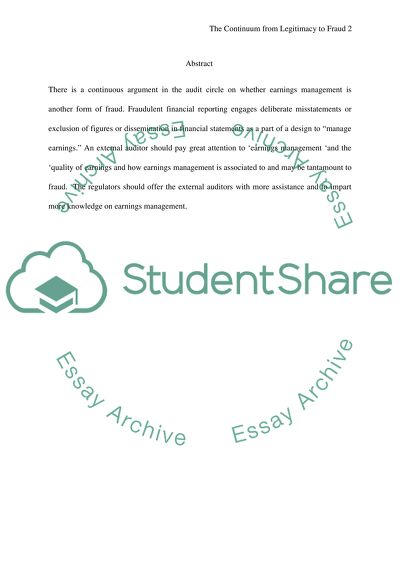Cite this document
(“Earnings Management: The Continuum from Legitimacy to Fraud Research Paper”, n.d.)
Earnings Management: The Continuum from Legitimacy to Fraud Research Paper. Retrieved from https://studentshare.org/finance-accounting/1403296-earnings-management-the-continuum-from-legitimacy-to-fraud
Earnings Management: The Continuum from Legitimacy to Fraud Research Paper. Retrieved from https://studentshare.org/finance-accounting/1403296-earnings-management-the-continuum-from-legitimacy-to-fraud
(Earnings Management: The Continuum from Legitimacy to Fraud Research Paper)
Earnings Management: The Continuum from Legitimacy to Fraud Research Paper. https://studentshare.org/finance-accounting/1403296-earnings-management-the-continuum-from-legitimacy-to-fraud.
Earnings Management: The Continuum from Legitimacy to Fraud Research Paper. https://studentshare.org/finance-accounting/1403296-earnings-management-the-continuum-from-legitimacy-to-fraud.
“Earnings Management: The Continuum from Legitimacy to Fraud Research Paper”, n.d. https://studentshare.org/finance-accounting/1403296-earnings-management-the-continuum-from-legitimacy-to-fraud.


